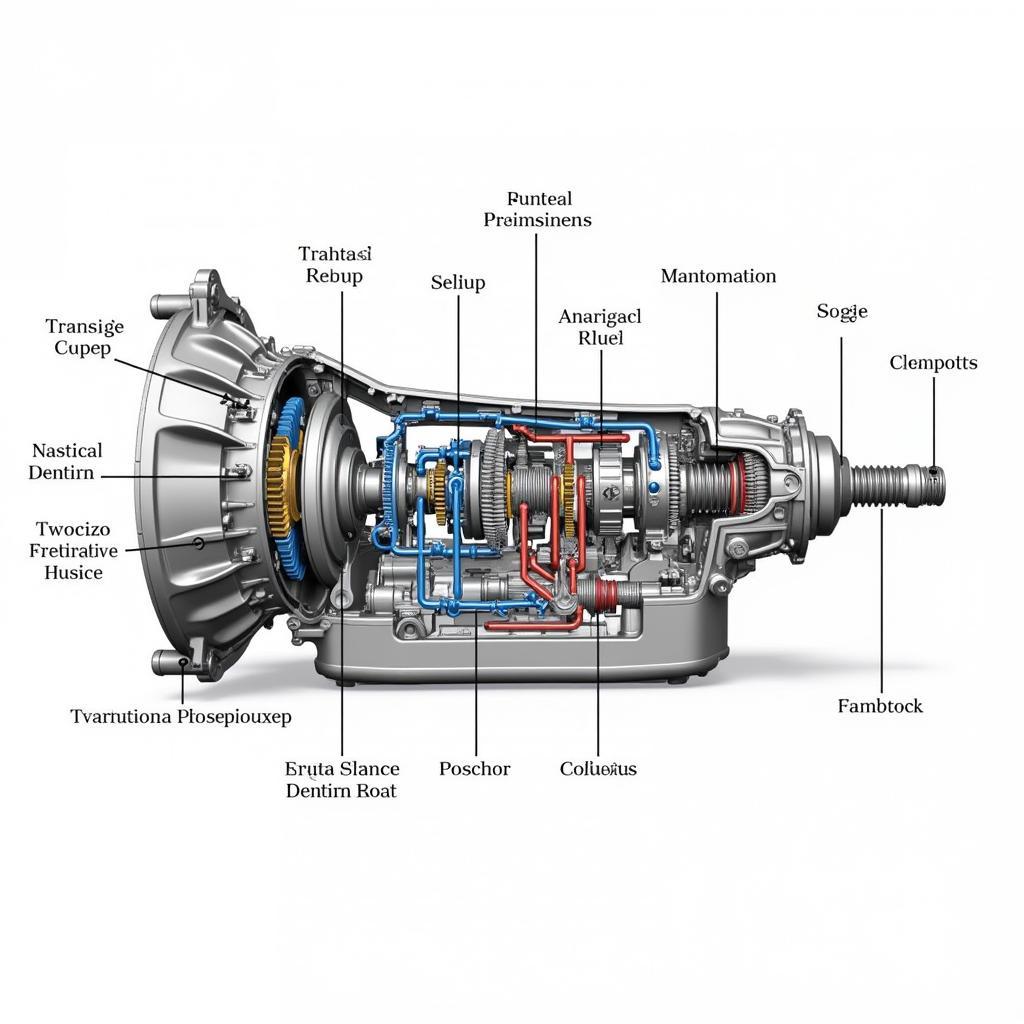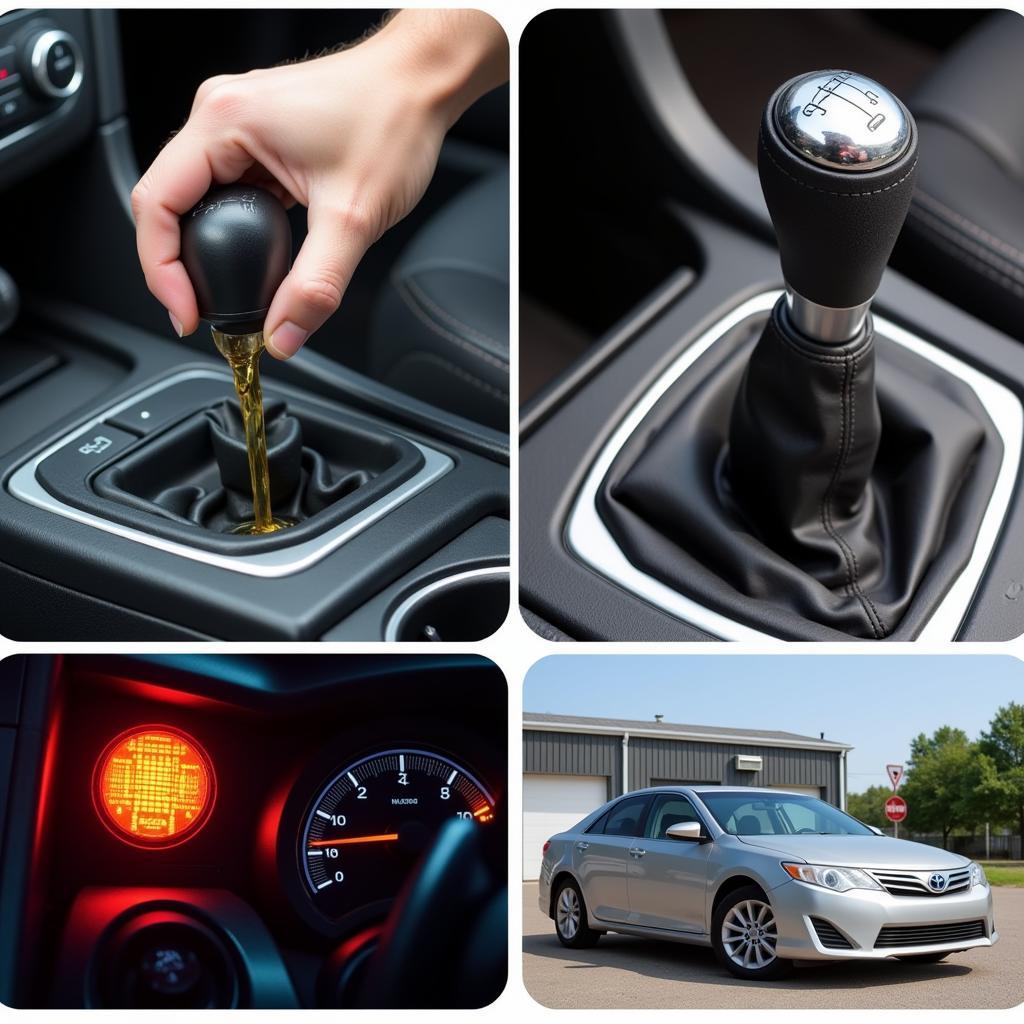You’ve probably heard horror stories about cars with bad transmissions. It can be a nightmare for any car owner, leading to expensive repairs and potential breakdowns. You might be wondering, “What cars are notorious for having transmission problems?” This article delves into the cars that have been known to have more frequent transmission issues.
What Is a Transmission?
A transmission is an essential part of a car that transmits power from the engine to the wheels. It allows you to change gears and helps the car move smoothly, both at low and high speeds. There are different types of transmissions, including manual, automatic, CVT, and dual-clutch, but each serves the same primary function.
Why Do Cars Have Transmission Problems?
Transmission problems are often caused by a combination of factors, including:
- Wear and tear: Like any mechanical part, transmissions eventually wear out due to use and time.
- Improper maintenance: Failing to change the transmission fluid regularly or neglecting other maintenance tasks can lead to problems.
- Driving habits: Harsh acceleration and braking can put stress on the transmission, especially in stop-and-go traffic.
- Manufacturing defects: Some cars are prone to transmission issues due to design flaws or manufacturing defects.
- External factors: Harsh weather conditions or driving on rough roads can also contribute to transmission problems.
What are the Signs of a Bad Transmission?
It’s important to be aware of the warning signs of a failing transmission. If you notice any of the following, it’s time to take your car to a mechanic:
- Slipping gears: The car seems to hesitate or slip when shifting gears.
- Rough shifting: The transmission shifts gears abruptly or with a jarring sensation.
- Loud noises: You hear grinding, whining, or clunking sounds coming from the transmission.
- Fluid leaks: You notice fluid leaking from the transmission area.
- Overheating: The transmission is overheating, which could be an indication of fluid loss or other issues.
 Car transmission diagram
Car transmission diagram
The Worst Cars for Transmission Problems:
Keep in mind that these lists are not exhaustive and represent general trends, and the actual experience can vary widely based on individual car maintenance, driving habits, and other factors.
Automatic Transmissions:
- Ford Focus: Some models, particularly those from 2012-2018, have reported transmission issues, including problems with the dual-clutch transmission.
- Chrysler 200: The 2015-2017 models have been criticized for their unreliable nine-speed automatic transmission.
- Nissan Altima: Some 2013-2015 Altima models have experienced issues with the CVT transmission, including slipping and shuddering.
- Honda CR-V: Earlier models, especially those from 2002-2006, had transmission issues, including rough shifting and slipping.
- Chevrolet Malibu: The 2016-2019 models are known for having transmission problems, including transmission failures.
CVT Transmissions:
- Nissan Rogue: The 2014-2018 models have been subject to issues with the CVT transmission, including shuddering and premature wear.
- Toyota Prius: The 2010-2015 models have also reported CVT transmission problems, including premature failure.
- Subaru Impreza: Earlier models, especially those from 2008-2011, had CVT transmission issues, including slipping and shuddering.
- Mitsubishi Outlander: The 2014-2017 models have been known for having CVT transmission problems, including premature failure.
- Infiniti QX50: The 2014-2019 models have reported CVT transmission issues, including shuddering and slipping.
 Common car transmission problems
Common car transmission problems
How to Prevent Transmission Problems:
- Regular Maintenance: Follow the recommended maintenance schedule for your car, including transmission fluid changes.
- Drive Responsibly: Avoid harsh acceleration and braking, especially in stop-and-go traffic.
- Check Fluid Levels: Check the transmission fluid level regularly and top it off if needed.
- Use High-Quality Fluids: Use the recommended transmission fluid for your car.
- Get Professional Repairs: If you suspect a transmission problem, take your car to a reputable mechanic for inspection and repair.
What Should I Do if My Transmission is Failing?
“The key is to catch these problems early. If you notice any signs of a failing transmission, don’t ignore them. It’s much better to address the issue early on before it becomes a major problem that can cost you a lot of money and time,” advises [Expert Name], a certified automotive technician with over 20 years of experience.
“If you experience any of the common signs of a bad transmission, it’s crucial to seek immediate professional help. Delaying the issue can lead to more extensive damage and even lead to a complete transmission failure. It’s important to remember that a transmission is a complex system and attempting to fix it yourself without proper experience and knowledge can be dangerous and could worsen the problem,” adds [Expert Name], an experienced auto mechanic with extensive knowledge in transmission repair.
Can I Prevent My Transmission From Failing?
“ While you can’t completely eliminate the risk of transmission problems, there are steps you can take to significantly reduce the chances of encountering these issues. Regular maintenance, using the recommended fluids, and adopting responsible driving habits are crucial for preserving the longevity and functionality of your car’s transmission,” states [Expert Name], an expert in automotive repair and maintenance.
Conclusion:
While some cars are known to have more frequent transmission issues, it’s important to note that not all vehicles of these makes and models will encounter transmission problems. Proper maintenance, responsible driving habits, and timely professional service can help prolong the life of your car’s transmission and avoid costly repairs.
If you are facing any transmission issues, don’t hesitate to reach out to us at Autotippro. We offer comprehensive automotive services and have a team of experienced technicians ready to assist you.
Phone: +1 (641) 206-8880
Address: 500 N St Mary’s St, San Antonio, TX 78205, United States
FAQ
Q: What are the most common transmission problems?
A: The most common transmission problems include slipping gears, rough shifting, loud noises, fluid leaks, and overheating.
Q: How often should I change my transmission fluid?
A: The recommended transmission fluid change interval varies depending on the make and model of your car. Consult your car’s owner’s manual for the recommended schedule.
Q: What can I do to prevent transmission problems?
A: You can prevent transmission problems by following the recommended maintenance schedule, driving responsibly, checking fluid levels, using high-quality fluids, and getting professional repairs promptly.
Q: What should I do if my transmission is failing?
A: If you suspect a transmission problem, it’s essential to take your car to a reputable mechanic for inspection and repair. Don’t ignore the warning signs, as delaying repair can lead to further damage and cost you more in the long run.




Leave a Reply